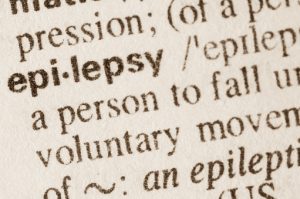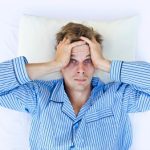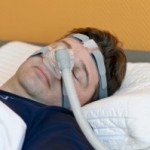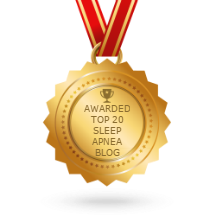Epileptic Seizures Could Be Linked To Sleep Deprivation
 The medical community has long known that people who suffer from epilepsy experience sudden electrical activity in the brain, and now there is significant evidence suggesting that sleep – particularly sleep deprivation – can trigger epileptic seizures.
The medical community has long known that people who suffer from epilepsy experience sudden electrical activity in the brain, and now there is significant evidence suggesting that sleep – particularly sleep deprivation – can trigger epileptic seizures.
A lack of sleep is associated with a number of negative health effects, including a suppressed appetite, loss of concentration and chronic diseases. Now, due to modern technologies, such as video electroencephalogram (EEG) and polysomnography (PSG), epilepsy observations have been made even clearer.
Over the last few years, new studies, and analysis of data collected in the 1960s and 1970s, have helped the medical community develop a better picture of the relationship between sleep and epilepsy.
Although we can’t say for certain why, research shows that sleep deprivation can increase the intensity and length of sleep seizures. Some forms of epilepsy appear to be especially prone to sleep problems.
Link between sleep deprivation and epileptic seizures
 According to the Department of Neurology at Vanderbilt University Medical Center in Nashville, Tennessee, one study showed that sleep deprivation is a cause of idiopathic generalized epilepsy in 28 percent of epileptic patients. During the same study, sleep seizures, known as temporal lobe epilepsy, were also observed in 27 percent of patients. A strong relation was found between sleep deprivation and the temporal lobe seizures in patients who kept daily diaries, which included details about the duration and date they experienced sleep seizures.
According to the Department of Neurology at Vanderbilt University Medical Center in Nashville, Tennessee, one study showed that sleep deprivation is a cause of idiopathic generalized epilepsy in 28 percent of epileptic patients. During the same study, sleep seizures, known as temporal lobe epilepsy, were also observed in 27 percent of patients. A strong relation was found between sleep deprivation and the temporal lobe seizures in patients who kept daily diaries, which included details about the duration and date they experienced sleep seizures.
The information analyzed by Vanderbilt indicated that patients with partial epilepsy, who were free of daily stress, did not seem to experience frequent seizures during sleep or when sleep was disrupted. Those with sleep disorders, such as sleep apnea, had a higher risk of worse seizures or more frequent epileptic seizures.
Obstructive sleep apnea is an intermittent pause in breathing. A French physician brought it to the world’s attention back in 1965. Since then, the interface between epilepsy and sleep disorders has received more attention. Today, sleep deprivation is often looked at during EEG when a waking EEG fails to show any abnormality.
In one recent study, patients from an outpatient neurological clinic who had possible seizures and suspected sleep disorders were evaluated with EEG and PSG. The patient seizure statistics, sleep disorders, and the response to therapies were reviewed and the interface explored. Fifty patients underwent PSG and half were diagnosed with epilepsy, with almost three-quarters having sleep disorders that required therapy.
Neurologists say that sleep activates the electrical charges in our brain that can result in seizures. What we have learned over many decades is that seizures are timed according to the sleep/wake cycle. For some people, the seizures only occur at night during sleep. This happens especially in the case of benign focal epilepsy, which is a childhood form of epileptic seizures.
Epilepsy and sleep disorders are a vicious cycle. Epilepsy itself disrupts sleep and sleep deprivation aggravates epilepsy. Sometimes the drugs used to treat epilepsy can also aggravate sleep. Since lack of sleep can be a trigger for seizures, getting a good sleep each night is very important if you have epilepsy.
Studies show that people who suffer from epilepsy have a higher rate of sleep apnea. Research conducted by the University of Michigan demonstrated that one-third of epileptic patients suffer from sleep apnea. Additionally, the data from Michigan suggested that epilepsy patients who have sleep apnea are more likely to have seizures at night when they are trying to rest.
What provokes epileptic seizures?
While we may not be able to say for certain why, for some reason, the following appear to provoke sleep seizures:
 Lack of quality sleep: This means you aren’t feeling rested when you wake up and have no energy during the day.
Lack of quality sleep: This means you aren’t feeling rested when you wake up and have no energy during the day.
- Difficulty falling asleep: Moods, awake-seizures and medications can cause insomnia.
- Anxiety: Depression and anxiety make it hard to fall asleep or stay asleep.
- Bad eating habits: Eating and/or drinking late at night.
- Medication side effects: Some medications can make it easy to fall asleep, but others make it hard to drift off.
- Sleep disorders: Sleep problems, such as sleep apnea or restless leg syndrome prevent quality sleep from occurring.
During sleep there is a lot happening in our brains. Our brainwaves switch from wakefulness to drowsiness and from light sleep to deep sleep to Rapid Eye Movement (REM) sleep. This cycle takes place three to four times per night. Dramatic changes can be seen on an EEG during the sleep cycle. Although the mechanism is not fully understood, there is evidence that this activity influences seizures.
To view the rest of the sleep apnea related article, click below:
You can buy CPAP Machines, tubing and all of your CPAP supplies at CPAP America, 707 Mantua Pike, West Deptford, NJ 08096. Feel free to contact us at 1-800-569-0167.
You can also reach us via email here.

